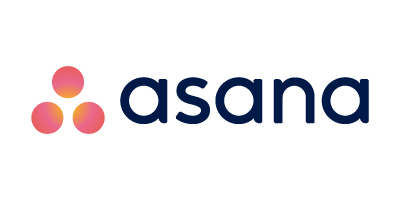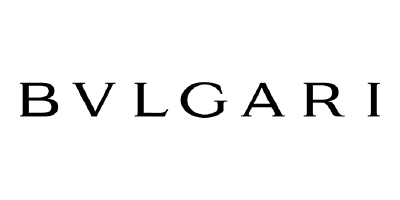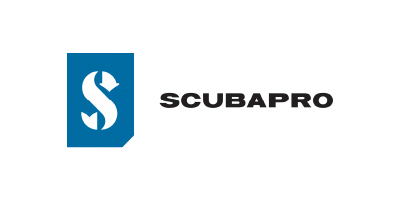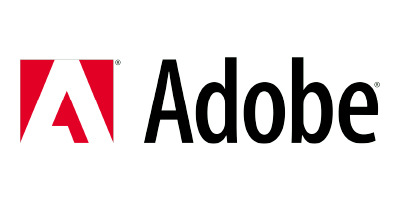
SEO & Organic Growth for the Japanese Market
Strategy-led SEO. Scalable content. Measurable impact.
I help global companies grow their Japanese-language websites through data-driven SEO, localization, and scalable content strategies.
With a background in in-house marketing and over seven years as an independent SEO consultant, I support companies entering or expanding in Japan by turning search demand into sustainable organic growth.
Featured Experience
Global Online Design Platform (SaaS)
Role: Sole SEO Lead for Japan
Engagement: 2019 – Present
I joined during the Japan market launch as the only SEO specialist and built the SEO function from the ground up.
Impact
- 50× growth in organic traffic
- 15×+ increase in monthly active users
- 4,000+ URLs optimized or launched
- Long-term engagement as Senior SEO Specialist
This project reflects my approach: strategic planning, scalable execution, and close collaboration with global teams.


How I Work
I provide end-to-end SEO support:
- Market and competitor analysis
- Keyword universe design
- Content frameworks that scale
- UX-focused, search-driven copy
- Continuous optimization and measurement
My work emphasizes clarity, structure, and outcomes—not guesswork.
Trust Signals / Quick Stats
- 200+ companies supported
- 10,000+ URLs launched or optimized
- Experience across SaaS, IT, security, semiconductors, consumer brands, finance, healthcare, and automotive

Clients
I have worked with more than 200 companies and I have completed more than 300 projects.
What I Do
SEO Strategy for Japan
I design SEO roadmaps aligned with business goals, user intent, and search behavior in the Japanese market—from market entry strategies to large-scale site optimization.
Keyword Research & Competitive Analysis
Comprehensive keyword research and SERP analysis to identify opportunities competitors miss, prioritizing scalability and long-term impact.
Localization & Transcreation
Not simple translation. I adapt content to Japanese search intent, language nuance, and cultural context to ensure relevance and performance.
Content & UX Copywriting
Search-optimized copy that balances rankings, clarity, and conversion—working closely with designers and product teams.
Technical & Cross-Functional SEO
Hands-on collaboration with engineers, PMs, and global stakeholders to implement SEO at scale.

Japanese content marketing

Contents SEO for the Japanese audience

Localize English content to Japanese with SEO
Background
Before becoming independent in 2017, I worked in marketing roles at:
- A food manufacturer
- A medical organization
- An outdoor brand
This foundation allows me to bridge brand, user insight, and performance-driven SEO.
FAQ for Japanese SEO
Google is the most used search engine in Japan.
Japan’s search engine market share is below.
PC:
Google 72.3%
Bing 16.8%
Yahoo! 9.86%
source:
https://gs.statcounter.com/search-engine-market-share/desktop/japan/
Mobile:
Google:80.7%
Yahoo!:17.5%
source:
https://gs.statcounter.com/search-engine-market-share/mobile/japan
However, AI is gaining momentum in Japan and this share may change in the future.
Yahoo is a local search engine in Japan, but Yahoo actually uses Google’s search algorithm. Therefore, there is not much difference in rankings between Google and Yahoo.
Yahoo has been using Google’s search algorithm since 2010, so there is no difference in ranking from Google.
source:
https://japan.googleblog.com/2010/07/yahoo-japan.html
It may differ depending on the timing of the search. Also, Yahoo ads and Yahoo’s own services are displayed in organic search results, so they look different.
For SEO in Japan, you only need to care about Google.
What a company that is not yet engaged in SEO should do first depends on the SEO level of its current website.
For example, if you do not have a website, you need to start by creating one. If you have a website but only about 10 pages, you need to create new pages and content to increase impressions. If you already have dozens to hundreds of pages of content on your website, but you are losing rankings to the competition for the keywords you are targeting, you should conduct keyword research to see if your target keywords are appropriate, optimize your pages based on each target keyword, embed keywords, and check for SEO competition. After checking the page content, rewrites and additions to the page content will be necessary.
As with any service, not just SEO, hiring a professional can drastically reduce the speed of the process. The work time is the same, and in the case of SEO, the speed at which results are achieved can be greatly reduced compared to doing it on your own.
The reason for this is that SEO companies and freelancers specialize in SEO and support SEO for various sizes and types of businesses, so they have by far the most accumulated know-how. Of course, they have not only successful cases, but also many unsuccessful cases. Failed cases can be improved, and successful cases can be horizontally deployed on various websites to check the results, thus reducing the probability of SEO failure.
On the other hand, there are of course advantages to doing SEO on your own, such as no new budget, the ability to accumulate know-how in-house, and no need to manage SEO agencies or freelancers. Although the opposite of these advantages, it still takes time to accumulate know-how because various PDCA cycles must be performed before success is achieved. In addition, SEO often takes a long time to produce tangible results, and it is often difficult to gain recognition within the company. Although there is no external budget, someone in the company will of course spend time working on SEO, and if the results do not produce the desired results, the budget for continued SEO will decrease.
It is necessary to consider the advantages and disadvantages of hiring a professional SEO agency or firm.
The quickest way to find out your SEO competition is to search for your target keyword on Google. The website that appears at the top of the organic search results for that keyword is the best competitor, so take a closer look at that web page.
What keywords are attracting visitors, what are the title, description, and H1, what kind of text, images, videos, and other content is on the page, how much volume is on the page, how often is it updated, and how many internal and external links are there, etc. Once I have completed each of these checkpoints, I will fill in the gaps between the client’s website and the competitor’s website. If I find that the client’s website does not have enough content, I will increase the content, and if I find that the client’s website does not have enough internal links, I will increase the internal links.
After that, I will monitor the target keywords for several months to see if they are improving in search rankings. I will continue to monitor your site so that you can achieve the number one position. If the clients’ websites are still not ranked #1 after a few months, it means that something is still missing, and I will continue to work on finding it and closing the gap.
When conducting keyword research, you need to find out the search volume of your target keywords. Search volume is a very basic number for SEO. There are some free ways to find out, but since it is a very important indicator, I recommend using a paid tool.
I mainly use Google Keyword Planner. You cannot apply for the tool by itself, and you need to be running a paid campaign with Google Ads. I use many keyword tools in combination, but Google Keyword Planner is the most accurate and the fastest to reflect the search volume of new keywords.
SEMrush, Ahrefs, MOZ, Keywordtool.io, Mangools, and Dragon Metrics are also commonly used by companies.
Also, when using keyword tools, it is important to compare them with the same keyword tool. Especially in the case of Japanese, search volume often differs greatly depending on the keyword tool. The presence or absence of spaces often changes the value by several thousand units, and search volume fluctuates considerably for keywords that mix katakana, alphabets, kanji, and other characters.
Also, for some keywords, it is not possible to check the search volume. For example, keywords related to medical care often do not show up on keyword tools. If search volume for a well-known keyword does not appear, it is possible that the search volume is not disclosed for some reason.
Basically, there is nothing we can do about individual Google algorithm updates. If the ranking is temporarily lowered due to the algorithm, the ranking will return if the website content is good for users, and if not, it means that the website content is inferior to the competition.
Continuous SEO improvement is necessary to recover/improve rankings. If we can consistently provide high-quality and useful content for users, we will be able to get steady traffic even with future Google algorithm updates.














